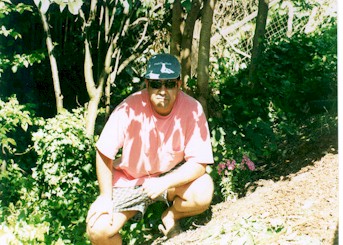Hui Doloon Hudag
It is the 2222nd anniversary of the establishment of the Hunnu empire, and the annual Naadam games make much of the numerological occasion. Naadam is Mongolian word for "games"; these games represent the joy of the harvest, and are the traditional annual event of the prairie. The origin of this holiday is old, dating back at least to the times of Chingis Khan; though the selection of the July 11-13 window in which it is held is more recent - on these days in 1921 Mongolian pro-communist forces liberated the then Khuree or Urga (present day Ulaanbaatar) from occupying White Russians.
Traditionally, the games consist of wrestling, archery, and horse racing. Unlike racing in Kentucky, Hong Kong or Dubai, which consists of short sprints of maximum 2 miles, the Mongolian horse-race is a cross-country event, with races 10–30 miles long. The length of each race is determined by the age of the horses; two-year-old horses race for ten miles, seven-year-old ones for seventeen miles. The jockeys consist of boys 5 to 13; many are maimed, crippled or killed from falls during racing. The most popular event amongst Mongolians is the four-year-old stallions race, which runs for fifteen miles - it starts at the outskirts of Ulaanbaatar and ends on the steppe in a place called Hui Doloon Hudag, which is, overnight, transformed into a city of yurts and SUVs at the finish line.
About a thousand horses are to participate and the owner of the horse that wins the four-year-olds race, we learn later, gets as grand prize a flat in Ulaanbaatar, ten different cars or SUVs as gifts from corporate houses, and countless other items of treasure from admirers. The top three horses are given gold, silver, and bronze medals, and the winning child-jockey is invested with the title of Tumany Ekh ("Leader of Ten Thousand.") The horse that finishes last in the Daaga, the two-year-old horses race, is called the Bayan Khodood ("Full Tummy".) A song is sung to Bayan Khodood, wishing him luck to be the next year's winner.
Doloon in Mongolian means seven, and a hudag is a well; this spot on the steppe is near seven wells. [Interestingly, the Doloon Garig (долоон гариг) or Seven Luminaries (Planets) of Mongolian astronomical use have Indian names: Mercury is Буд or Bud (Budh), Venus is Сугар or Sugar (Sukr), Mars Ангараг or Angarag (Angarah), Jupiter Бархасбад or Barkhasbad (Brhaspat), Saturn Санчир or Sanchir (Sanischar). Uranus and Neptune, not known in antiquity, have more recent names: respectively Тэнгэрийн ван or Tengerin Ong (Prince of Heaven), and Далайн ван or Dalain Ong (Prince of Oceans.)]
We rise early to get to Hui Doloon Hudag. Soon, barely out of city center, traffic comes to a standstill. About 200,000 cars are inching their way out, and it takes us two hours to cover 5 kms. In the middle, several police spotter cars with flashing lights race down the reverse-lanes escorting 20 identical Toyota Land-Cruisers laden with VIPs but still doing 100 kmph; in their wake, also escorted by militia, come a slower convoy of ambulances, press, a humvee carrying bottled water. Day-before-yesterday the Khan, yesterday the Commissar, today the Parliamentarian or Minister; some things never change.
At the first opportunity, our enterprising driver crawls down the side of the road into a ditch, manages to ford it to the steppe on the other side, and, disregarding the standstill traffic on the highway, we set off madly across the fields to try to catch the end of the race. The first 5 kms took two hours, the last 50 to Hui 7 Hudag take but thirty bone-rattling minutes. Once within sight of the yurt city where the finish line is, we hear a great sigh go up from the assembled crowd; "they see the horses! they see the horses!" screams 'Zaya. We jump off our transport and sprint pell-mell over the steppes, arriving breathless over the hills. It is a false alarm; it takes the four-year-olds another good hour to show up, during which I sprawl down on the hillside, dropping from the veils of the morning to where the cricket sings.




0 Comments:
Post a Comment
<< Home